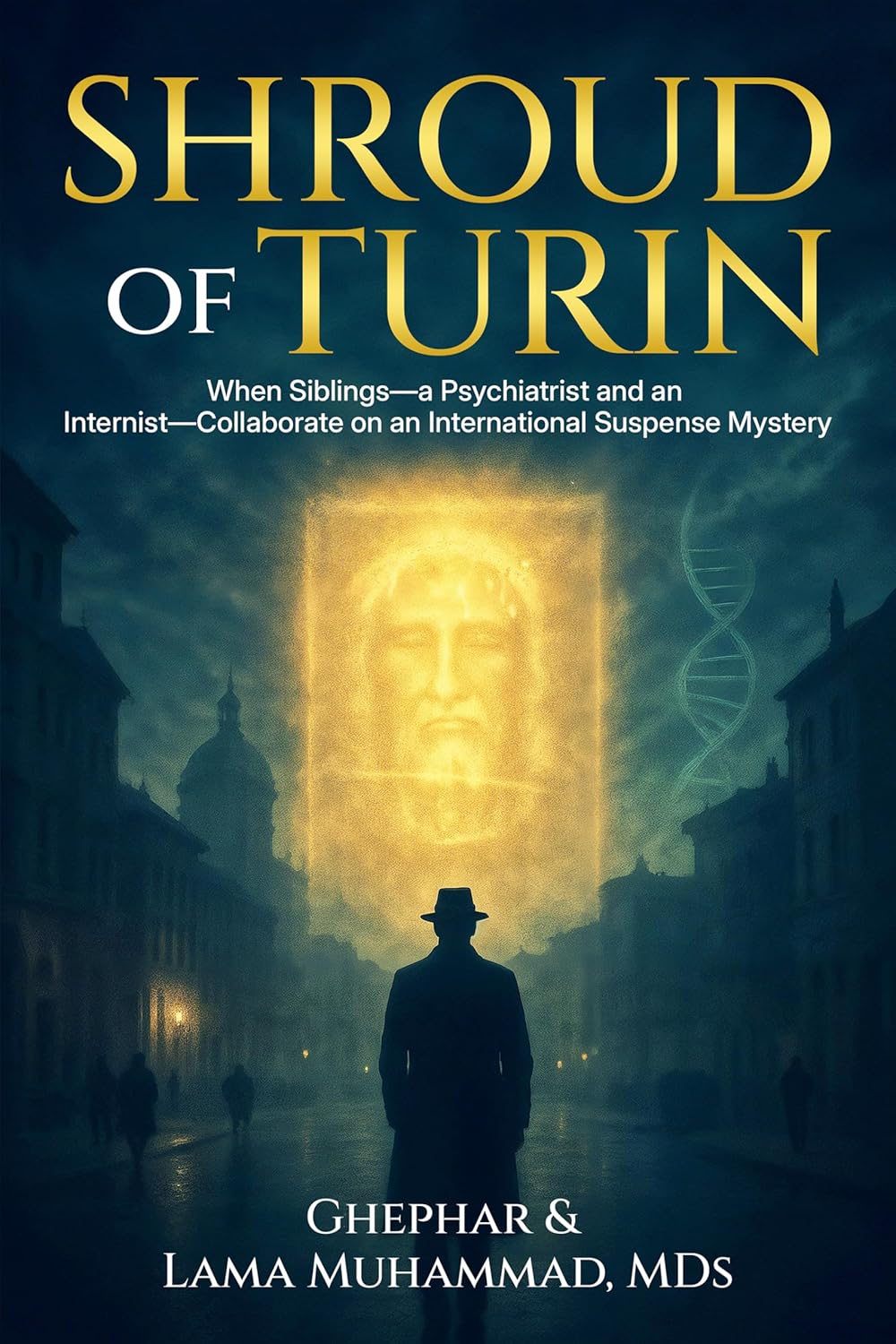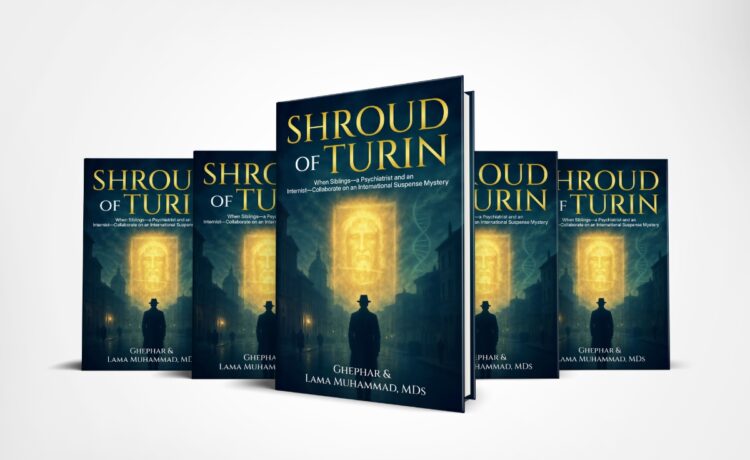Two doctors walk into a writing room—sounds like the start of a joke, but it’s actually the beginning of something Hollywood should probably pay attention to. Dr. Ghephar Muhammad, an internist, and his sister Dr. Lama Muhammad, a psychiatrist, have created a medical thriller that reads like it’s already been optioned for streaming.
Their novel, Shroud of Turin, does something genuinely unexpected with Christianity’s most controversial relic. Instead of another Da Vinci Code knockoff, the Muhammad siblings imagined what would happen if someone tried to use Jesus’s burial cloth for human cloning experiments. It’s wild in the best possible way—the kind of premise that makes you wonder why no one thought of it before.
What’s fascinating is how they’ve wrapped this wild concept in what they call a “cozy narrative style.” Picture this: you get the comfort of a traditional mystery where you know you’re in safe hands, but then suddenly you’re dealing with a powerful mafia boss named Sergei, international conspiracies, and cutting-edge medical ethics. It’s like finding out Agatha Christie secretly wrote episodes of Black Mirror.
Here’s where their medical backgrounds really shine through. Dr. Lama’s psychiatric expertise shapes multiple main characters who each live with different mental health conditions. Not as plot devices or tragic backstories, but as fully realized people whose experiences illuminate different facets of mental disorders. Each character’s journey subtly explores real symptoms and treatments without ever feeling like you’re reading a medical journal. The authors carefully weave these diverse realities of mental illness throughout the narrative, offering both insight and healing.

The story follows four unlikely heroes—a poet-singer named Prometheus, a physics professor named Andrew, an influencer-writer named Bilal, and Detective Bongani—who band together when reality itself seems to shift. These aren’t your typical thriller protagonists. They’re searching for meaning in a world that’s stopped making sense, and honestly, who can’t relate to that these days?
Dr. Ghephar’s internist perspective grounds the cloning science in just enough reality to make you think, “Wait, could this actually happen?” while Dr. Lama ensures the psychological elements feel authentic rather than Hollywood-ized. Together, they’ve created characters who feel like people you might actually know, dealing with mental health challenges while also trying to stop a megalomaniac from stealing religious artifacts.
The siblings describe their book as offering “fresh perspectives on the deeper meanings of life,” which sounds pretentious until you realize they actually deliver on it. Between the suspense beats, characters grapple with purpose, faith, science, and what it means to be human when someone’s literally trying to manufacture humans. There are touches of magical realism that elevate the story beyond typical thriller territory.
What really sets this apart from other medical thrillers is the combination of elements that shouldn’t work together but somehow do. The cozy mystery comfort, the international intrigue, the mental health awareness, the religious artifact heist, the cloning conspiracy—it’s like someone threw genre conventions in a blender and somehow made a smoothie that actually tastes good.
For readers tired of thrillers that feel like they’re following a template, this collaboration offers something genuinely different. It’s the kind of book that makes you think while keeping you turning pages, educates without preaching, and somehow makes human cloning and mental health equally compelling plot points.
Shroud of Turin is available on Amazon.














